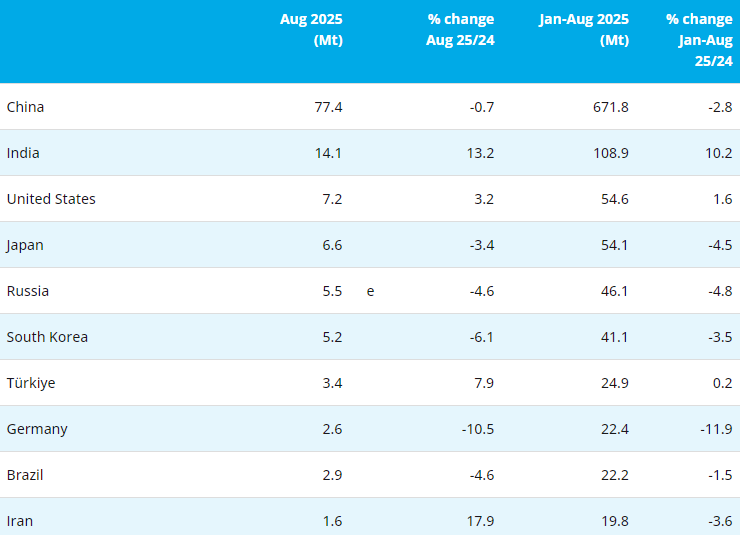[ferro-alloys.com]Mexican long steel producer Deacero is betting on a flexible portfolio and a diverse export market to navigate a challenging domestic and global trade environment, the mill's CEO Raul Gutierrez said in an interview with S&P Global Platts.
After closing a two-year, $300 million-investment plan this year, Deacero is now awaiting more clarity in the political and economic landscape before committing to new projects.
The company recently commissioned a 500,000 mt/year rolling mill for bars and light sections at its Ramos Arizpe plant in the northern Coahuila state.
The mill will allow the company to widen its product portfolio. However, the Mexican construction market -- which represent 40% of Deacero's sales -- has been much weaker than expected, "and this sector will only reverse trend when there are new investments in infrastructure in the pipeline," he said.
Gutierrez cited a worsening scenario during the second half of the year, mainly due to the uncertainties brought on by a government transitional period and global trade tensions.
For him, it is still unclear what the new government, commanded by the left-wing Andres Manuel Lopez Obrador, known as AMLO, will do in terms of boosting the economy and the industry.
"Our domestic and export sales have dropped about 20% just in H2," he added, although the company has managed to continue operating at a 65% rate of its 4 million mt/year annual finished steel capacity.
Domestic sales have decreased on poor demand, while external shipments have been hampered by the 25% import tariffs on steel products imposed by the US.
He explained about 35% of the current output is directed to exports, mainly to the US, Canada, but also to the Caribbean, Central and South America and Europe.
"There are no production cuts planned for the short term," he stressed, "but we have been well impacted on profitability".
Gutierrez mentioned Deacero's Missouri-based Mid Continent Steel & Wire, the largest domestic nail manufacturer, has been significantly impacted by increased costs, with intermediate steel products shipped from its Mexican units.
There were 150 people dismissed out of a total of 600, as operations have become drastically more expensive, he said, adding he remained confident on a possible Mexican exemption from the tariffs before the signing of the new North American trade pact. "So when things are "back to normal" the plant will still be there."
The executive also mentioned surging raw material and energy prices as an additional obstacle for cost effectiveness. "Energy power prices jumped around 50% this year, electrode costs quadrupled in a year and ferrous scrap is subject to international prices and US dollar variations," he explained.
- [Editor:王可]



 Save
Save Print
Print Daily News
Daily News Research
Research Magazine
Magazine Company Database
Company Database Customized Database
Customized Database Conferences
Conferences Advertisement
Advertisement Trade
Trade















Tell Us What You Think